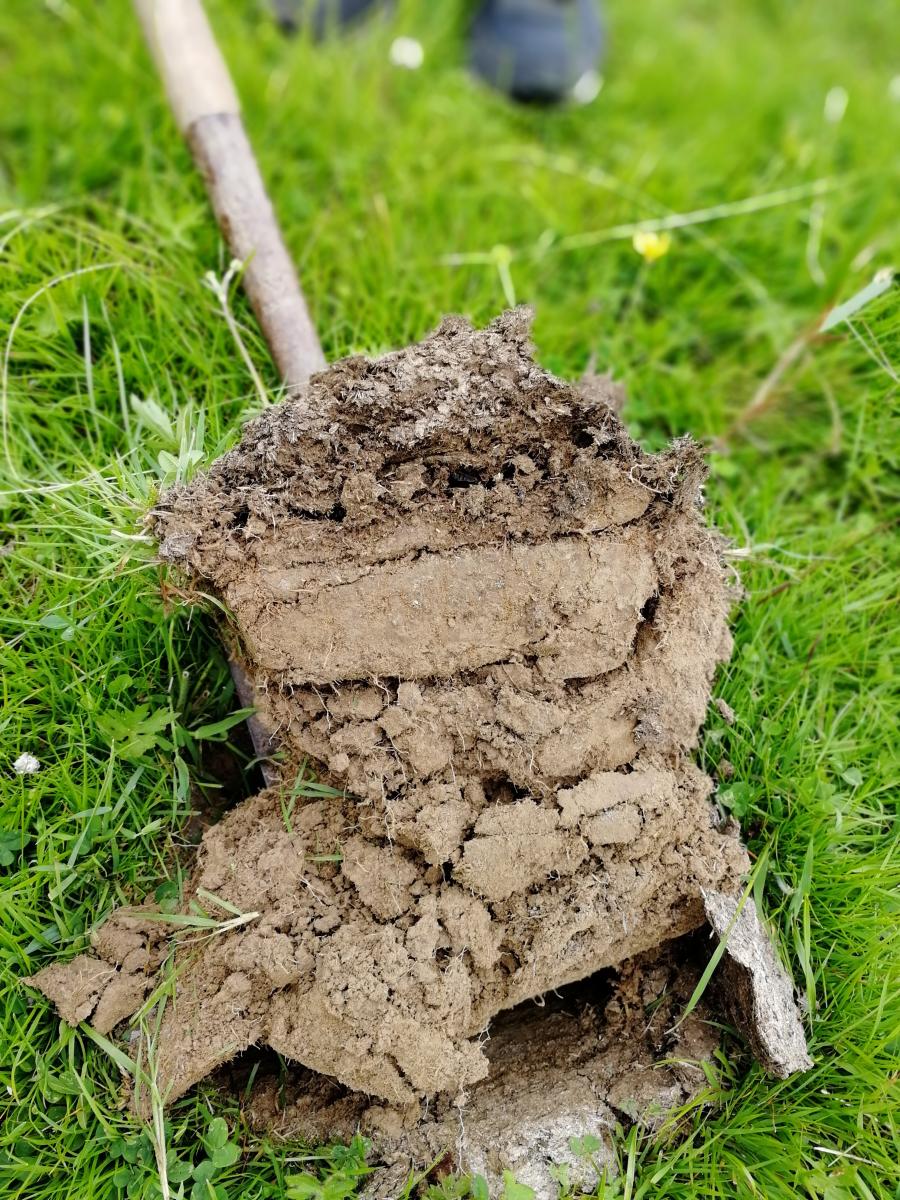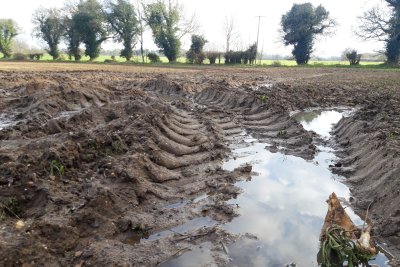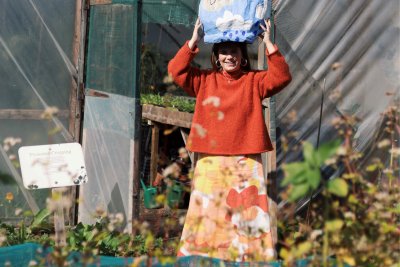Blogs • Sustainable Farming Campaign
Why agroecology should be part of the future of UK farming
The UK’s post-EU Agricultural Bill - released as a draft in September - is now passing through further stage for approval. Whilst it proposes many measures for supporting environmentally-friendly farm practices, it does not yet go far enough to support whole farm approaches such as (and especially) agroecology, writes Ben Davis of LUSH Times.

Global food production is facing a growing convergence of issues that threaten food sovereignty: The environment is rapidly deteriorating, agricultural productivity is being threatened and public health has been compromised. The UK’s new Agricultural Bill provides a once-in-a-generation opportunity to shape the future of farming and our relationship with the environment. And, If we are to limit global warming to 1.5 celsius below pre-industrial times, agriculture must end its reliance on costly energy intensive inputs and adopt methods that rely on the natural ecological processes of the farmland-ecosystem.
So, what are the issues?
The new Agriculture Bill sets out the Environment Secretary’s, Michael Gove’s, vision for achieving a Green Brexit, shifting public support away from area-based payments for productive land to giving farmers financial support for providing ‘public goods’. These include thriving wildlife, clean air, preventing flooding, improved public access to farmland and healthy soil. Whilst this is a groundbreaking move in the right direction, there is concern that it needs to go further and promote whole farm systems and affordable healthy and local food, alongside improving the environment.
The current provisions in the new Agriculture Bill could see landowners shifting their attention away from food production to turn their farms over to nature management - further threatening our food sovereignty: The proposed new payments could pay farmers for carrying out good environmental management on the edge of a field whilst carrying out completely contradictory work in the middle of the field.
The fact is, we need to transform farming systems beyond wildlife measures on the edge of fields. As Kerry McCarthy said during one of the committee hearings; “I always make an analogy with a big company that has a fair trade coffee brand, but 95% of their coffee is not fair trade. However, does it really deserve credit for that 5%?”.
Is there an alternative?
To address this, two key amendments have been proposed to the Agricultural Bill Committee. Drafted by the Soil Association and Sustain, and supported by the Land Workers’ Alliance, these amendments call for stronger powers for supporting agroecological farm systems and local food production. This would ensure that the Bill provides the best framework for shaping agriculture in the most ecologically and socially just way.
On 30th October, amendment 41 on agroecology was voted down by the Committee. George Eustice argued that the Bill already “enables us to support and provide grants for businesses that are starting up in organics or a different agroecological system, such as agroforestry.” He continued to say that “those that adopt a holistic whole-farm system can expect to receive more than those farmers who say ‘we’ll let a corner of the farm that is less productive go’ but not so much beyond that.”
However provisions do not equal duties. During the same Committee hearing, Kerry McCarthy explained that with a limited amount of money the concern is that farmers with huge stakes who cherry-pick the public goods will get their hands on quite a lot of the pot of money, with the result that the share for people who farm sustainably across the whole farm and adopt some of the approaches the Minister has mentioned is reduced.
All is not lost though as there will be further opportunities after the Committee stage for amendments to be proposed before it goes to the third reading and then on to the House of Lords.
What makes agroecology so special?
Over the past century, the conventional model of farming has relied heavily on mechanical and chemical technologies to produce more food. This has tended to come from a highly simplified one-dimensional view of agroecosystems whereby the individual parts; their genetics, agronomy, soil nutrients and pests, are regarded independently. This has led to imbalances in the ecosystems and the social and environmental dislocations that we are seeing today.
Agroecology on the other hand goes beyond this. It emphasises the interrelatedness of all agroecosystem components and the complex dynamics that drive productivity, stability and resilience. As Stephen Gliessman sums it up - it is the application of ecological concepts and principles to the design and management of sustainable farmland ecosystems. It provides the knowledge and methodology necessary for developing an agriculture that is environmentally sound, culturally sensitive, socially just and economically viable.
By understanding the complex system of ecological relationships and processes, e.g. nutrient cycling, predator/prey interactions, competition, symbiosis and diversity; the agroecosystem can be manipulated to improve production and to produce more sustainably, with fewer negative environmental and social impacts and fewer external inputs.
In 2015, the Land Use Policy Group commissioned the report ‘The Role of Agroecology in Sustainable Intensification’ (written by Nic Lampkin and co at the Organic Research Centre.) It examines the role agroecology can play in raising yields and minimising environmental impacts whilst using less land. The report compares agroecological and conventional systems in terms of energy and GHG emissions, biodiversity, soil and water, profitability and productivity and found that agroecology could maintain or improve the performance of agriculture in all these elements; providing a beneficial tool for combating climate change, improving the natural capital of the UK and producing food.
Furthermore the ecological approach to agriculture does not necessarily require the production of more food; it instead aims for ‘eco-efficiency,’ which means increasing the production yields per unit of inputs and per unit of undesirable outputs. This holistic understanding of food production instead takes into account the need to reduce waste and to better distribute more nutritious food, not only to change practices.
Since the 1980’s agroecology has been recognised by various NGOs, farmer groups, university research centres, governmental and intergovernmental organisations as having the potential to end poverty in developing countries and improve food systems in developed countries. Most notably; in 2012 the French Government launched the Agroecology Project which has sought to address the challenges facing agriculture. As Europe’s largest agricultural producer, this is a significant step.
And last year, President Macron launched the General State of Food (GSF), an investigation into the French agrifood system to develop agroecological strategies for each of the sectors. Additionally the Government itself, launched various non-legislative thematic plans which included: A plan on organic agriculture, a plan to phase out pesticides, a plan on fair trade, etc. all highlighting the importance to move agriculture in the right direction.
By making specific mentions to whole farm approaches such as agroecology, the new UK Agriculture Bill would be able ensure the largest amount of public goods are delivered. This is because it would take a holistic approach to farming, focusing on the production of healthy local food, whilst restoring the environment and mitigating against climate change. As opposed to supporting spot measures on the edges of fields ...
What’s needed from you?
In order to ensure that Members of Parliament are aware of the enormity of this opportunity and the importance of enshrining agroecology into the bill we all need to contact our local MP’s and let them know how we feel; asking them to attend discussions on the floor of the House and to support any amendments concerning agroecology.
The Land Workers Alliance and Sustain have created useful and easy-to-use tools for getting in contact with your local Parliamentary representative and telling them what is needed. Follow these links below:
https://sustainweb.eaction.org.uk/lobby/agriculturebill
Further reading:
One of our writers got to spend a day with the biggest contributors to the field of agroecology, Miguel Altieri - her article on the benefits and core ideas of agroecology can be found here:
https://uk.lush.com/article/how-agroecology-could-transform-planet
The Future of Farming Panel from the 2018 Lush Summit featured the Land Workers’ Alliance, Sustain, Permaculture Magazine and Kerry McCarthy. If you want to hear more from the people working to get agroecology in the bill, follow the link:
http://player.lush.com/tv/future-farming-lush-summit-2018
Author bionote
Ben Davis studied an MRes in Politics at the University of Exeter. Ultimately he went on to write his dissertation about the impact of Brexit on the UK farming industry and how adopting agroecological methods can help alleviate the problems being faced. He currently works for the Lush Buying team, providing assistance to the Creative Buyers to ensure that the best farming practices are supported.
This article first appeared in the LUSH Times
Published Monday 26 November 2018
Sustainable Farming Campaign: Sustain encourages integration of sustainable food and farming into local, regional and national government policies.





